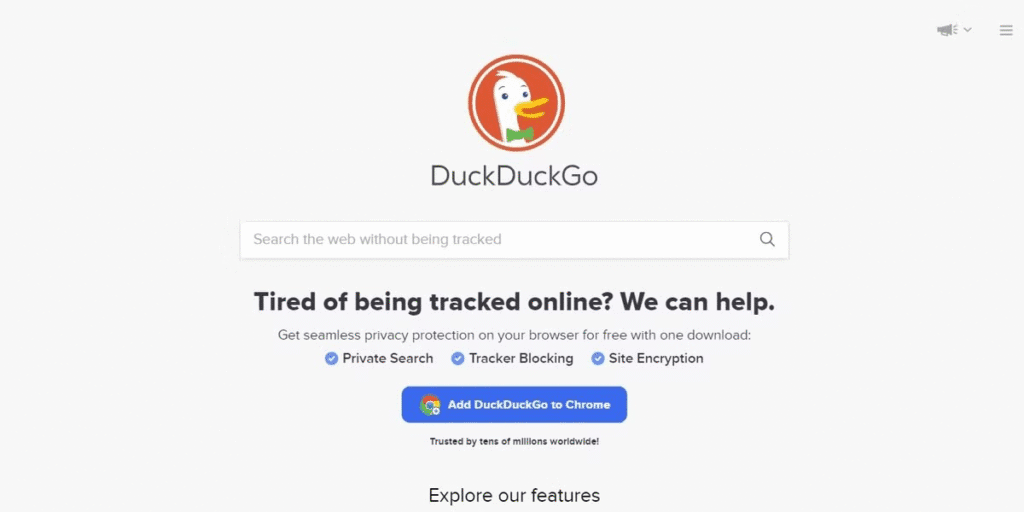You type a question into Google without thinking twice. It’s automatic. You need an answer, so you Google it.
But here’s what most people don’t realize: Google isn’t the only search engine that matters. If you’re running a business trying to reach customers in Russia, you’re invisible without Yandex. Selling to China? Baidu is the only game in town because Google is blocked. Targeting South Korea? Naver often beats Google for local searches.
If you’re dealing with:
- Content that ranks well on Google but gets zero traffic in your target country
- Missing entire markets because you optimized for the wrong search engine
- Privacy-conscious customers who refuse to use Google and never see your content
- Wasting ad budget on platforms your actual audience doesn’t use
You’re not alone. Most businesses default to Google and ignore regional search engines that dominate specific markets.
This guide breaks down the top 10 search engines worldwide, what makes each one valuable, and how to pick the right one for your audience. Whether you’re expanding to new markets or just curious about alternatives, you’ll learn which search engines actually matter and why.
1. Google Search
Google processes billions of queries daily and remains the default search engine for most of the world.
Market share: Google controls 94.64% of mobile searches and 82.23% of desktop searches as of September 2025. The gap between Google and everyone else isn’t just big, it’s massive.
Why Google dominates: Decades of algorithm refinement, the largest search index (more crawled and cataloged web pages than any competitor), and integration with services people use constantly: Maps, YouTube, Gmail, Android.
Strengths:
- Largest search index means it finds more pages than competitors
- Highly relevant results for most queries
- Seamless ecosystem: search for a restaurant, view it on Maps, read reviews, get directions without leaving Google
- Features like featured snippets, knowledge panels, and rich results provide instant answers
Limitations:
- Market dominance means less diversity in perspectives. What Google ranks shapes what information people see
- Privacy trade-offs: Google tracks search history, location, and behavior across services to personalize results and target ads
- Most people never actively choose Google, they just never switch from the default
Use case: Google works best for general search needs, reaching global audiences, and taking advantage of rich search features. If you’re optimizing content for the broadest possible reach, Google remains essential. Businesses need strong Google rankings to capture the majority of search traffic in most countries.
Want to dominate Google search results in your industry? Socialander combines technical SEO, content optimization, and link building to improve your visibility. Book a free consultation.
2. Bing

Bing has steadily grown its market share, particularly among desktop users and within Microsoft’s ecosystem.
Market share: Bing holds 4.09% of the worldwide search engine market as of September 2025. In desktop search specifically, Bing captures 10.6% globally. In the United States, Bing reached 7.5% in April 2025, one of the highest shares ever registered.
Why Bing matters: Tight integration with Windows, Edge browser, and Microsoft 365 products makes it the default for millions of enterprise users. The Bing Rewards program pays users for searching, creating loyalty.
Strengths:
- Default search engine for Windows users who never change settings
- Image and video search interfaces often praised as superior to Google’s
- AI integration through Copilot has dramatically improved search quality
- 54.68% of console users search through Bing, making it dominant for Xbox and gaming audiences
Limitations:
- Smaller user base means less data to refine algorithms
- Many search results mirror Google’s because both engines crawl the same web
- Tiny mobile market share despite desktop success
Use case: Bing matters for reaching Windows users, targeting desktop searchers, marketing to enterprise audiences, and tapping into Microsoft’s ecosystem. If your audience uses Windows computers at work, they’re likely using Bing whether they realize it or not.
3. Yahoo

Yahoo combines search with news, finance, email, and portal services, maintaining relevance through its ecosystem rather than search innovation.
Market share: Yahoo holds approximately 1-2% of global search share. While small, Yahoo remains in the top five search engines worldwide, particularly strong among older demographics who rely on Yahoo Mail and Yahoo Finance.
Why Yahoo persists: Portal services create sticky user experiences. People checking email or reading news often search without leaving Yahoo. Brand familiarity among users who’ve used Yahoo for decades maintains a loyal base.
Strengths:
- Portal homepage aggregates news, sports, and entertainment, making it more than just a search box
- Brand recognition among users who joined the internet in the 1990s and early 2000s
- Integration with Yahoo Mail and Yahoo Finance keeps users in the ecosystem
Limitations:
- Search results are powered by Bing, meaning Yahoo doesn’t operate an independent search engine
- Innovation has slowed compared to Google and Bing
- Market share has gradually declined as younger users adopt Google and mobile-first platforms
Use case: Yahoo works for users who want portal services combined with search, older demographics comfortable with familiar interfaces, and businesses targeting audiences who use Yahoo Mail or Yahoo Finance regularly.
4. Yandex

Yandex dominates Russian-language search and serves as the go-to engine across Russia and Commonwealth of Independent States countries.
Market share: Yandex holds approximately 2.5% global market share. As of Q4 2023, more than 63% of internet users in Russia used Yandex, while Google users represented just over 33%. This regional dominance makes Yandex critically important for reaching Russian-speaking audiences.
Why Yandex dominates Russia: Excellent Cyrillic language understanding and processing gives Yandex superior results for Russian queries. Local services including Yandex Maps, Yandex Taxi, and Yandex Market create a comprehensive ecosystem.
Strengths:
- Algorithm optimized for Russian grammar, syntax, and cultural context delivers better relevance than Google for Russian content
- Understands regional dialects and colloquialisms across Russia and CIS countries
- Integrated services Russian users rely on daily (maps, taxi, marketplace, email)
Limitations:
- Limited relevance outside Russian-speaking regions
- International businesses without Russian market focus can safely ignore Yandex
- Western sanctions have complicated Yandex’s relationships with international partners
Use case: Yandex is essential for businesses targeting Russian or CIS audiences, optimizing Russian-language content, or marketing products and services in Russia, Belarus, Kazakhstan, and neighboring countries. If your audience speaks Russian, Yandex optimization matters as much as Google.
5. Baidu

Baidu dominates Chinese search in a market where Google is blocked, making it essential for reaching the world’s largest internet population.
Market share: Baidu is the most used search engine in China. Despite some market share decline, Baidu’s position in China makes it one of the world’s most important search engines by absolute user numbers, even if global market share appears small.
Why Baidu dominates China: Chinese language processing optimized for Mandarin, Cantonese, and regional dialects. The ecosystem includes Baidu Maps, Baidu Baike (Wikipedia equivalent), Baidu Tieba (forums), and other services Chinese users rely on daily.
Strengths:
- Only viable option for search marketing in mainland China where Google, Bing, and Western engines are blocked or severely limited
- Deep understanding of Chinese language nuances and search behavior
- Integrated services Chinese consumers use for navigation, information, and e-commerce
Limitations:
- Almost entirely Chinese language, limited value for non-Chinese content
- Less relevant outside China and Chinese diaspora communities
- Requires understanding of Chinese internet regulations and censorship requirements
Use case: Critical for businesses targeting the Chinese market, optimizing Mandarin content, or selling products to Chinese consumers. Companies entering China must optimize for Baidu the way Western companies optimize for Google.
6. DuckDuckGo

DuckDuckGo has built a loyal following by promising no tracking, no data collection, and simple, unbiased search results.
Market share: Worldwide, DuckDuckGo claims 0.54% of the search engine market. In the US, it holds 1.96%. More impressively, DuckDuckGo handles an average of 3 billion search queries a month.
Why privacy matters: Zero tracking means no search history, no personal data collection, and no user profiling. Simple, clean interface without ads based on your browsing history.
Strengths:
- Appeals to growing segment of users concerned about privacy and data security
- Browser extensions and apps block trackers across the web, not just in search
- No filter bubble: everyone sees the same results for the same query
Limitations:
- Smaller index than Google means some niche queries return fewer results
- Lacks personalization features that some users appreciate
- Missing some advanced search features and integrations that Google offers
Use case: Perfect for privacy-conscious users, people concerned about data tracking, and businesses targeting audiences who value privacy. Small businesses and content creators focusing on privacy-aware demographics should optimize for DuckDuckGo. Growing market share suggests privacy concerns are mainstream, not just niche.
7. Naver

Naver dominates South Korean search through unique content formats and tight integration with Korean digital culture.
Market share: Naver holds a small global share but commands significant market position in South Korea, competing closely with Google and sometimes surpassing it in specific demographics and content categories.
Why Naver dominates Korea: Korean language optimization understands local grammar, slang, and search patterns. Integration with Korean-specific content like webtoons, K-pop news, and local services.
Strengths:
- Portal-style homepage aggregates news, blogs, and community content popular in Korean internet culture
- Naver Shopping and Naver Pay create a comprehensive ecosystem for Korean e-commerce
- Deep integration with Korean entertainment industry and local businesses
Limitations:
- Almost entirely Korean-focused, limited utility outside South Korea
- Smaller international business compared to global players
- Requires understanding of Korean internet culture and user behavior
Use case: Essential for businesses targeting South Korean consumers, K-pop and Korean entertainment companies, and content creators focusing on Korean audiences. If you’re marketing in South Korea, Naver optimization matters alongside or sometimes more than Google.
8. Ecosia

Ecosia attracts environmentally conscious users by using ad revenue to plant trees around the world.
Market share: Ecosia secured 0.094% global market share. While small, this represents millions of searches by users who prioritize environmental impact.
Why people choose Ecosia: Plants one tree approximately every 45 searches, with over 200 million trees planted since launch. Transparent financial reports show exactly how profits fund tree planting.
Strengths:
- Appeals to eco-conscious consumers and younger demographics concerned about climate change
- Uses Bing search results but without Microsoft tracking
- Combines privacy with environmental mission
Limitations:
- Smaller scale means limited ability to develop unique search features
- Relies on Bing for actual search technology
- Fewer advanced features compared to major engines
Use case: Brands targeting environmentally conscious audiences benefit from Ecosia optimization. Green businesses can highlight Ecosia compatibility as part of sustainability messaging. Users who want to contribute to reforestation through daily searches choose Ecosia.
9. Ask.com

Ask.com, originally launched as Ask Jeeves in 1996, pioneered the question-and-answer search format that influenced how people interact with search engines today.
Market share: Ask.com holds less than 0.1% of global search market share, but its historical influence on search behavior remains significant.
Why Ask.com matters historically: The platform transformed from a butler-themed question service into a more traditional search engine. While it never captured meaningful market share against Google’s rise, it proved people wanted to ask complete questions rather than type keywords.
Strengths:
- Question-based search interface feels natural for users who want to ask complete questions
- Still maintains a question-and-answer community where users help each other, similar to Quora
- Straightforward interface for simple queries
Limitations:
- Extremely small market share means limited resources for innovation and index updates
- Search results often lack the depth and freshness of Google or Bing
- The site has pivoted multiple times, showing strategic uncertainty
Use case: Ask.com works for users seeking straightforward answers to simple questions, older demographic familiar with the brand from its 1990s and early 2000s prominence, and as a backup search option when primary engines don’t deliver desired results.
Legacy: The question-based search approach Ask.com pioneered now appears in Google’s featured snippets and “People Also Ask” boxes, meaning Ask.com’s innovation lives on even if the platform doesn’t dominate.
10. AOL Search

AOL Search remains active as part of the AOL portal ecosystem, serving users who’ve maintained AOL email accounts and those familiar with the brand from the dial-up internet era.
Market share: AOL holds less than 0.1% of global search market share, with most usage coming from users accessing it through AOL.com or AOL-branded email interfaces.
Why AOL persists: Brand recognition among users who joined the internet through AOL in the 1990s and early 2000s remains strong. Integration with AOL Mail means users checking email can search without switching platforms.
Strengths:
- Portal homepage aggregates news, entertainment, and lifestyle content alongside search
- Appeals to users who want a one-stop web experience
- Familiar interface for longtime internet users
Limitations:
- AOL Search uses results powered by Bing and Google, meaning it doesn’t operate independent search technology
- Market share has declined steadily for two decades
- Almost no mobile adoption, user base skews heavily toward desktop and older age groups
Use case: AOL Search serves existing AOL email users, older demographics who’ve used AOL for decades and see no reason to switch, and users who prefer portal-style homepages combining search with curated content. If your target demographic is age 60+, particularly those who came online during the dial-up era, some portion may still use AOL as their homepage and default search.
How to Pick the Right Search Engine for Your Needs
Choosing the right search engine depends on three factors: your geographic target audience, your priorities, and your device ecosystem.
Match engine to region:
Google dominates most of the world, including India, Germany, Mexico, Spain, Brazil, Italy, and Australia. However, regional exceptions matter enormously:
- Russia: Yandex is essential (63% market share)
- China: Baidu is non-negotiable (Google is blocked)
- South Korea: Naver optimization required
Small business strategy: Focus entirely on Google unless you have compelling regional or niche reasons to diversify. Limited resources mean you can’t optimize for everything.
Consider your audience priorities:
- Privacy-conscious users: Optimize for DuckDuckGo
- Environmentally aware consumers: Consider Ecosia
- Enterprise/Windows users: Don’t ignore Bing
- Older demographics: Yahoo and AOL still matter
Device ecosystem matters:
- Desktop users: Bing captures 10.6% of desktop searches
- Mobile users: Google dominates with 94.64%
- Console gamers: Bing controls 54.68% of console searches
Conclusion
Google remains the global leader with nearly 90% market share, but the search engine landscape includes important alternatives with strong use cases.
Know your audience. Identify which engines they actually use. Optimize accordingly.
Most businesses should focus primarily on Google but add Bing for comprehensive reach. Companies targeting Russia, China, or South Korea must optimize for local engines.
Search engine optimization isn’t one-size-fits-all. Match your strategy to where your audience searches, and you’ll reach more potential customers with less wasted effort.
Ready to develop a search engine strategy that reaches your audience wherever they search? Socialander creates custom optimization plans covering different search engines based on your target markets. Book a free consultation.
FAQ
Is Google the only one worth optimizing for?
No, though it should be your primary focus in most cases. While Google dominates globally, regional engines like Baidu or Yandex are critical if you target those markets. Bing captures meaningful traffic in desktop and enterprise segments. Optimize for engines where your specific audience actually searches.
Can I switch my search engine default?
Yes. Most browsers let you select default search engines in settings:
- Chrome: Settings > Search Engine
- Firefox: Settings > Search
- Edge: Settings > Privacy, Search, and Services
- Safari: Settings > Search
Switching affects your personal experience but doesn’t change what your target audience uses. Business optimization decisions should be based on audience behavior, not your personal preferences.
Do smaller engines deliver good results?
Yes, especially for their niche or region. Yandex delivers excellent results for Russian queries despite a small global share. Baidu understands Chinese better than Google. Smaller doesn’t mean worse; it means specialized. They may have less global data, but they serve specific audiences very well.





